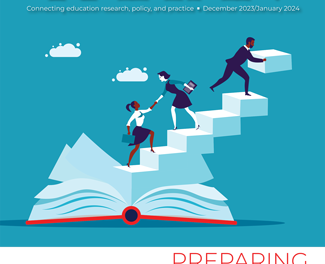 Twenty years of unrelenting teacher bashing has not managed to budge the American public’s views of teachers: Teachers are great.
Twenty years of unrelenting teacher bashing has not managed to budge the American public’s views of teachers: Teachers are great.
When you ask public school parents if they trust and have confidence in teachers, 62% answer yes. But they don’t stop there. In this year’s PDK/Gallup Poll of the Public’s Attitudes Toward the Public Schools, Americans back up that response with specifics:
- Public school parents say communicating with their child’s teacher is easy, a finding that’s consistent across black, white, and Hispanic parents. Most interesting is how very few parents say they strongly disagree with that statement.
- American public school parents also say pretty clearly that they believe schools are safe places where children are able to do their best work and that teachers recognize and praise good effort at school.
- Teacher salaries are too low, a response that may say as much about value as it does about dollars and cents, as in “we can’t pay you enough for this important work.”
- In spite of the growing emphasis on testing in U.S. schools, Americans say they don’t believe that testing provides the most accurate picture of a public school student’s academic progress. Instead, the bulk of respondents (47%) point to written observations by the teacher and grades awarded by teachers as the factors they trust. So what teachers say about students carries more weight with Americans than the results of standardized achievement tests. (These questions were reported in the September 2015 issue of Kappan.)
- Last month, we also reported that 95% of Americans believe that the quality of teaching is “very important” for improving public schools.
If Americans indicate high regard for teachers and the work they do, they’re also equally clear that they expect more from the profession. They want higher professional requirements for teachers, along the lines of those for doctors and lawyers, and they want high-achieving high school students recruited into the profession.
In a tough love message, however, the public also seems to be saying that elevating teaching to true professional status may require that teachers give up something they hold precious: tenure. The public does not support tenure — 59% of the general public, and 54% of public school parents oppose tenure. (In another poll, the Pace/USC Rossier School of Education poll in California, conducted last year while the Vergara tenure case was getting a lot of media attention, six in 10 California voters said teachers should not continue to receive tenure. Only 25% said the state’s teachers should continue to have tenure.)
Right or wrong, the perception is that tenure assures teachers of lifetime employment without accountability. That irks a lot of people. The message from Americans may be that professional status and tenure cannot co-exist.
This is a hard message for some, coming as it does as teachers feel under attack from politicians and pundits. But a thread of deep respect runs through all of this. In numerous ways, Americans say the work of teachers and evaluations by teachers, not tests, carry great weight. Americans have long given the highest grades to the schools closest to them because they know the teachers in those schools, and they trust them.
But Americans also are saying that this trust and respect is not a gift. Teachers have earned this through the quality of their work, and they must continue to earn it through great work year after year. Not only do they want teachers to pass board certifications that are similar to those in medicine and law, they want teaching to stand shoulder to shoulder with those professions. They’re asking for a signal that the profession is ready to respond in kind.
The message from Americans is clear: Step up to the high expectations we have for you. We know you can do this.
Citation: Richardson, J. (2015). The editor’s note: Tough love for teachers. Phi Delta Kappan, 97 (2), 4.
ABOUT THE AUTHOR

Joan Richardson
JOAN RICHARDSON is the former director of the PDK Poll of the Public’s Attitudes Toward the Public Schools and the former editor-in-chief of Phi Delta Kappan magazine.










